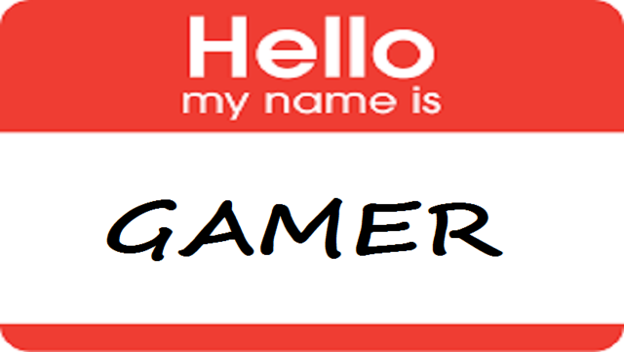Do you call yourself a gamer? If so, you’re part of a small minority of people who actually play video games. A new Pew Research report states that while 49% of Americans play video games, only 10% call themselves gamers. “Gamer” has come to mean something much more than simply, “person who regularly plays and enjoys video games.” It has become an identity , albeit a hotly contested one that means something a bit different to anybody you ask. We often talk about “gamers” or “the gaming community” when writing about video games, but I’ve started thinking twice before doing so. Instead, I’ve been wondering if perhaps it’s time for the “gamer” identity to die. It just might be doing us more harm than good. When gaming becomes who we are instead of what we do, things can start getting ugly.
There are numerous downsides to thinking of gaming as an identity instead of simply a hobby or leisure time activity. It can cause people to lose a sense of perspective, making minor game-related issues seem like a much bigger deal than they actually are. It can cause gatekeeping, where people decide that certain other people aren’t worthy of being called “gamers” because of their particular level of experience, skill, or their gaming preferences. It can even cause aggression, where self-proclaimed gamers decide to issue death threats, swat, or otherwise harass and threaten others with whom they disagree about game-related issues.
Over the last couple years, gender has been a major flashpoint around arguments over the “gamer” identity. Some people are convinced that there are lots of “fake gamer girls” out there who pretend to like games for nefarious purposes (I suspect there are about as many of those as there are “fake cross-stitch guys” trying to trick unwitting crafty ladies). Women and girls who self-identify as gamers are disbelieved or asked to pass certain “tests” in order to prove that they’re “real” gamers. Pew’s research noted that men who play games are twice as likely to identify as gamers than women who play games. There are many possible reasons for this, but the hostility that many women (including myself) have experienced simply for talking about or enjoying games online is one big reason. If you’ve been harassed, threatened, or subjected to creepy advances from people calling themselves gamers, you’re not going to be very interested in calling yourself a gamer even if you play mainstream console games on a regular basis.

At this point, I can’t help but wonder if we’d all be a bit healthier mentally if we decided to drop the thought of being “gamers” altogether. Maybe we could engage our Great Aunt Tildy, who thinks video games lead to mass shootings, more calmly and intelligently if we didn’t feel quite so personally attacked by her opinion. Maybe we could actually work towards a better public perception of gaming if fewer of us flew into a howling, incoherent, personal rage whenever somebody who criticizes gaming or gaming culture comes along. Maybe we’d remember to spend more time on non-gaming hobbies, or even more time actually gaming than arguing about games on the internet.
I know that some people who had rough childhoods have found solace and community by identifying as a gamer, and I certainly wouldn’t want to take that away from them. But when large groups of these same people turn around and attempt to “defend” the gamer identity by trying to exclude others, it starts to feel like the label does more harm than good. Can’t we find friendship with like minded game players without making “gamer” an intrinsic part of our identity as a person? Would that cut down on some of the nastiness and gatekeeping we find in certain gaming communities? What do you think? Would we all be better off simply thinking of ourselves as people who enjoy games rather than as having the “gamer” identity? Please do sound off in the comments!
